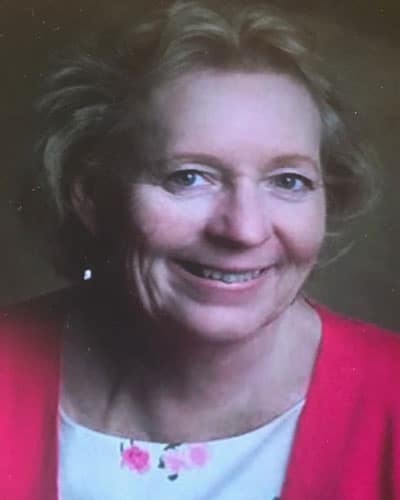Pamela Reeves Memorial UT Knoxville Torchbearer Alumni Scholarship Endowment was established to gather support for deserving students and help advance East Tennessee
In much of what she did, Pamela Reeves (’76, ’79) set a record as being the first. She was the first woman to serve as a federal judge in the East Tennessee district and the first woman to lead the Tennessee Bar Association. The people who were close to her say that she didn’t reach these accomplishments through hardheadedness. Instead, she had a unique ability to connect with perfect strangers and find common ground where others saw division.

When Reeves passed away after a period of illness last year, her friends and family established the Pamela Reeves Memorial UT Knoxville Torchbearer Alumni Scholarship Endowment. Their intention is to gather support for deserving students and help advance East Tennessee—a region Reeves was committed to throughout her life. She was one of five sisters from the Southwest Virginia mountains who didn’t have running water at home until their family moved to the Tri-Cities area.
It was at the University of Tennessee that Reeves flourished academically, immersing herself in student government, helping underclassmen as an orientation leader, and ultimately earning the university’s highest student honor, the Torchbearer Award. During high school, a group of teachers had recognized her talent and helped her overcome her family’s financial circumstances to attend UT, said Reeves’ husband Charles Swanson (’79).
“They wanted to make sure her talent would not be wasted, so it was very special for Pam to attend UT, and she took to the university like a duck to water,” said Swanson, who is the law director for the City of Knoxville. “She was amazing because she didn’t lack any confidence, even though her background was not a privileged one. She was incredible in that regard, and she was just never reticent to move to the top of her class. She took advantage of all her opportunities in a way that, frankly, makes us proud, and she did so with her natural personality and by acclimating with everybody who was around her.”
Swanson can vividly remember Reeves making conversation with strangers on elevators by complementing minor details such as their jewelry, shoes, or perfume. She was genuinely interested in everyone she met and wanted to know their stories.
Reeves’s passion for leadership can be traced back to her time as a Torchbearer and orientation leader at UT. She made a point of attending as many reunions as possible, and was visited by former classmates from across the country during her illness.
“An incredible number of people came to see her one last time,” Swanson said. “That is a testament to the strength of relationships you can build in the atmosphere of UT if you’re just willing to do so.”
She’s such a wonderful role model for being an activist in such a way as to actually get something done.
– Robert Horning (’76, ’79), torchbearer
While Reeves never learned that a Torchbearer scholarship was being endowed in her name, Swanson knows how she would react.
“I can see her now,” he said. “I can see the expression on her face and hear her saying, ‘I don’t know why they’re doing this,’ because in her own mind she didn’t do anything special. She was just doing what she enjoyed and felt like she should be doing.”
Robert Horning (’76, ’79) was a Torchbearer with Reeves, and he initiated the scholarship in her name. Horning, who is a financial advisor in Los Angeles, remembers years of youthful idealism during which he and Reeves lived in the same student house and shared a circle of friends. Because they were both from Bristol, they shared a sense of small-town camaraderie.
“She was just an exceptional human being,” Horning said. “I could tell, even at the time, that not only was she brilliant and insightful, but she cared for other people as well. Admittedly, I was never surprised as her career reached ever-greater heights.”
Reeves and Horning were involved in student government together and advocated for their viewpoints on how UT could best advance its mission as a land-grant university. Naturally, their ideas were not always accepted unanimously, but Reeves had “a way to be partisan but not offend people,” Horning said.
“She reached across the aisle and moved people without creating a confrontation,” he added. “To me, that’s a reason to make sure others remember her as the years go by. She’s such a wonderful role model for being an activist in such a way as to actually get something done.”
